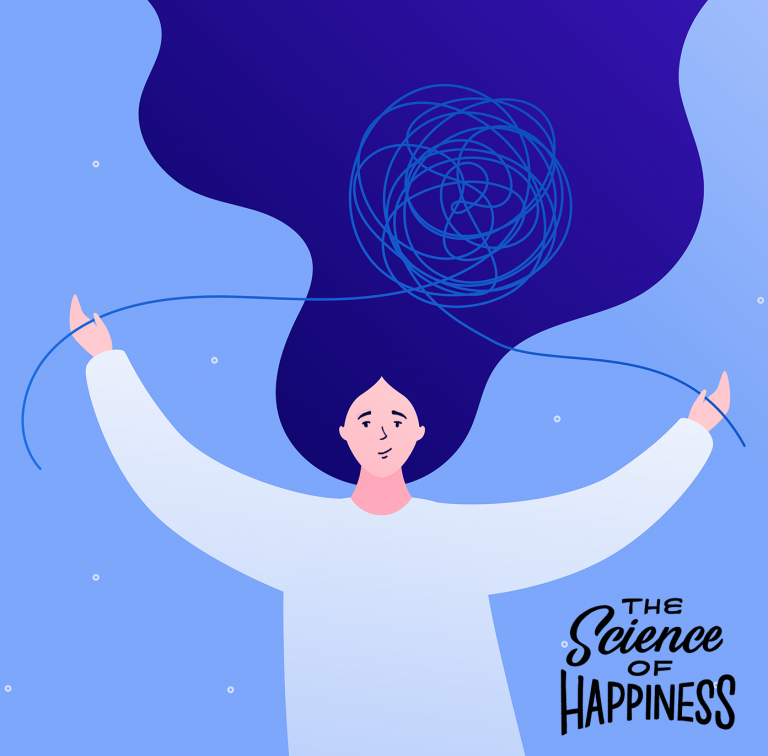
Scroll down for a transcription of this episode.
Our guest tried a practice in Radical Acceptance, a Buddhist principle made popular by today’s expert, psychologist Tara Brach.
Episode summary:
Sometimes, a setback in work or life can leave us feeling defeated and uninspired. Nadia Zafar is a neurobiology student who has been pursuing her PhD for the last 6 years. Recently, her lack of progress had her spiraling in thoughts of self-doubt and unworthiness. For our show, Nadia tried a practice rooted in the Buddhist principle of Radical Acceptance, called RAIN. By actively recognizing emotions without judgment, investigating them further, and then nurturing those sensations, she started to approach her negative and anxious thoughts from a place of self-compassion instead of blame. Later, Dacher speaks with Buddhist psychologist Tara Brach. She explains the elements of the practice that make it so effective, and how approaching situations from a place of acceptance helps disrupt our reactive instincts — opening up more space for awareness and compassion for ourselves and others.
Practice:
When you come up against something challenging – you’re angry or frustrated or feeling any way about yourself, another person, or a situation – move through these steps. It might be helpful to sit somewhere you feel comfortable. Close your eyes for a few moments, and begin by taking a few deep, intentional breaths, to help settle the mind.
- Recognize what’s happening. For example, “I am getting caught up in anger right now.”
- Allow the emotion you recognize to be there: Accept that you are feeling the way you’re feeling. You may go a step further and forgive yourself for it, for example by saying to yourself, “Anger forgiven.”
- Investigate what’s underneath whatever you’re feeling by directing a gentle curiosity towards it. For example, where there is anger, there is something we care deeply about.
- Nurture: You might put your hand on your heart, remind yourself that many have struggled with the very thing you’re struggling with now, and send yourself a message of kindness and understanding.
Today’s guests:
Nadia Zafar is a 6th year neurobiology PhD student at the University of Toronto.
Tara Brach is a leading voice in the field of contemplative meditation practices.
Learn more about Tara and her work:
Read Tara’s book, Radical Acceptance: Embracing Your Life With the Heart of a Buddha:
Follow Tara on Facebook:
Follow Tara on Twitter:
Follow Tara on Instagram: http://tinyurl.com/y743bkru
Resources from The Greater Good Science Center:
Happiness Break: Radical Acceptance, With Tara Brach (The Science of Happiness Podcast):
Can Self-Awareness Help You Be More Empathic?
How Does Mindfulness Help Cultivate Self-Compassion?
How to Bring Self-Compassion to Work with You:
Want to Change Your Life? Try Self-Compassion: http://tinyurl.com/2y2ryc6m
More Resources on Radical Acceptance:
Harvard – Greater self-acceptance improves emotional well-being:
BBC – Why self-compassion – not self-esteem – leads to success:
Ted – Dare to rewire your brain for self-compassion: http://tinyurl.com/yc2ru73p
Tell us about your experiences and struggles with accepting difficult situations. Email us at happinesspod@berkeley.edu or use the hashtag #happinesspod.
Help us share The Science of Happiness!
Transcript to come.
Source:Greater Good , greatergood.berkeley.edu, 2024-02-01 11:00:00,Source Link